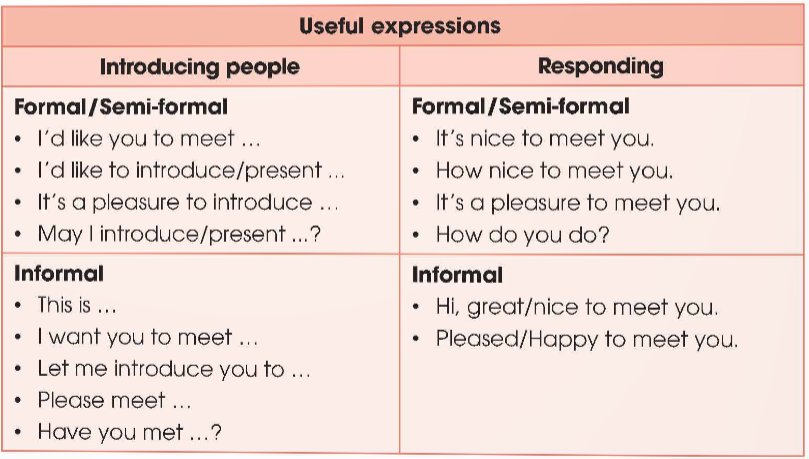Read the text and put a tick (✓) or cross (x) in the box next to the pictures to show the appropriate behaviour in different cultures. Culture SHOCKCulture shock refers to feelings of confusion or anxiety that people may have when experiencing a new and different culture. Culture shock can be caused by language barriers, unfamiliar lifestyles, different climate, or strange food. For example, visitors to the US find it hard to get used to the loc...
Đọc tiếp
Read the text and put a tick (✓) or cross (x) in the box next to the pictures to show the appropriate behaviour in different cultures.
Culture SHOCK
Culture shock refers to feelings of confusion or anxiety that people may have when experiencing a new and different culture. Culture shock can be caused by language barriers, unfamiliar lifestyles, different climate, or strange food. For example, visitors to the US find it hard to get used to the local tipping culture. By contrast, tipping in Japan can be considered rude and even insulting in many situations.
The best way to overcome culture shock is to start learning about the new culture before moving there. You should try to focus on the positive aspects of your new experiences and keep an open mind. Learning about cultural diversity helps understand different ways of thinking about the world, gain new knowledge and experiences, and promote personal growth.
Research says that almost two-thirds to three-quarters of the world drive on the right, while only one-third to a quarter of the world drive on the left including the UK and Australia. Or you may find out that things that you're used to are banned in another country, In Singapore, for example, the sale of chewing gum is illegal and Singaporeans take this law very seriously. So always remember that culture shock is not a bad experience, but the beginning of an exciting learning journey to cultural diversity.



